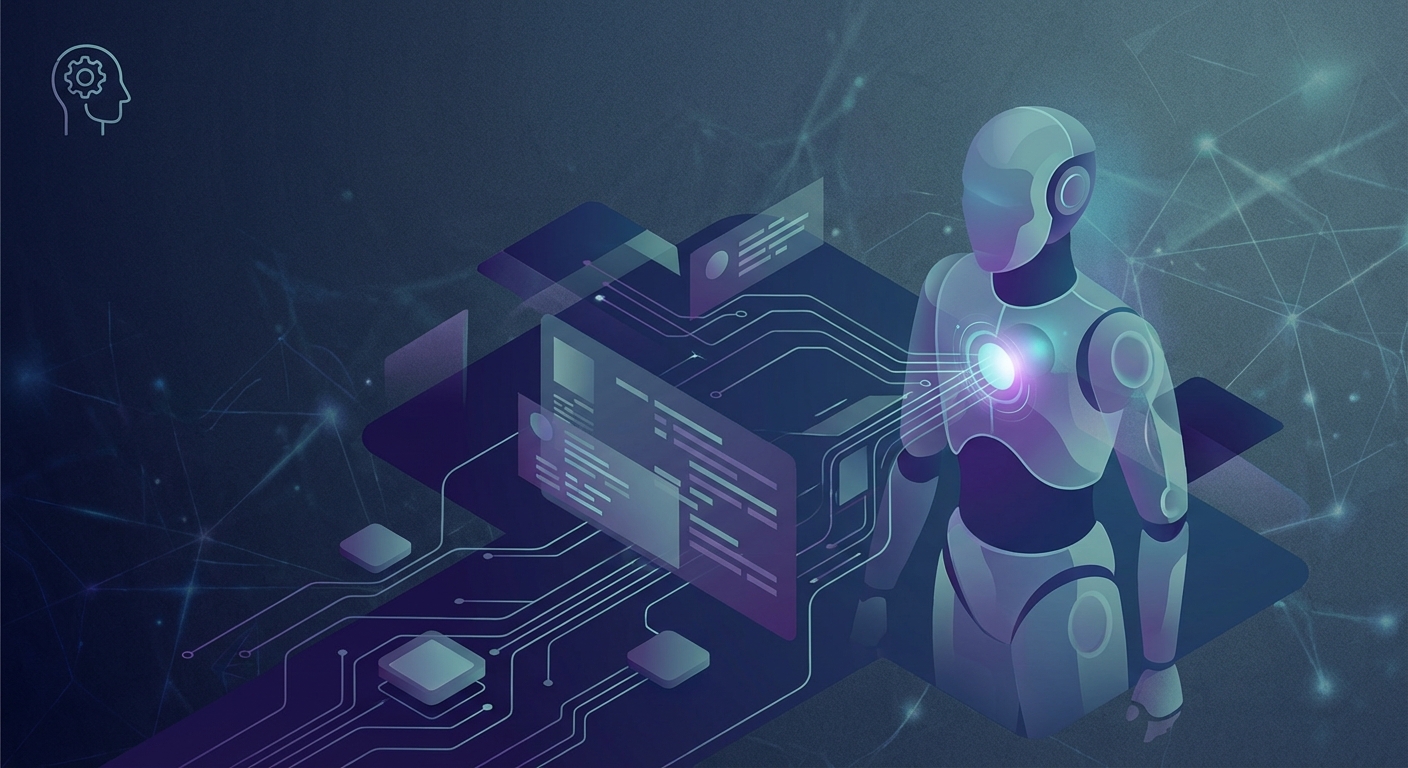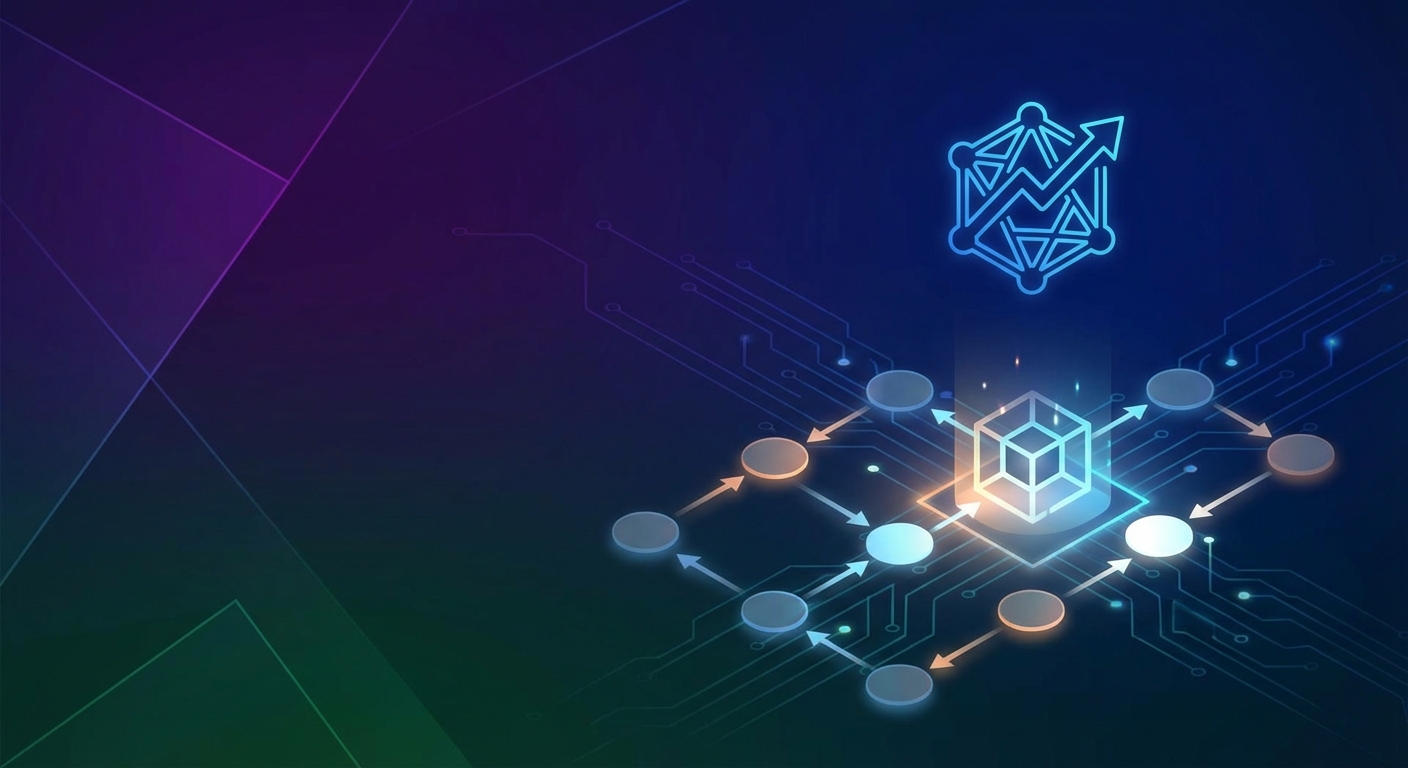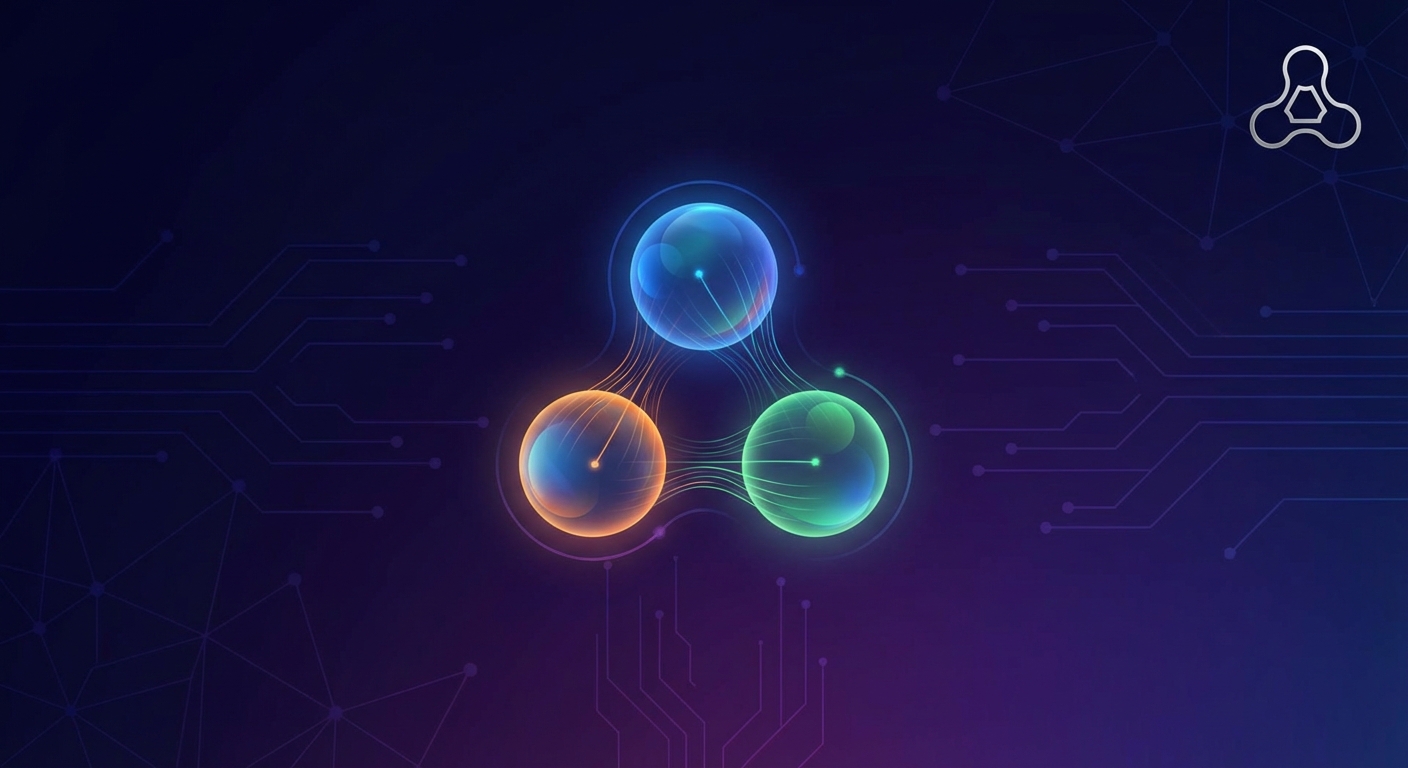Are AI Agents Just Hype? A Critical Examination
TL;DR
- This article cuts through the noise surrounding AI agents, covering their capabilities, limitations, and practical applications in business automation, customer service, and data processing. It offers a balanced view, exploring both the transformative potential and the current realities of AI agent technology, including security, governance, and ethical considerations, to help you assess their true value.
Introduction: The AI Agent Buzz
Okay, so ai agents, right? Seems like everyone's talking about them these days. Are they actually gonna, y'know, do anything, or is it just another tech bubble waiting to burst? Honestly, feels like half the time i dont even know what people mean when they say "ai agent" anyway.
- Basically, ai agents are supposed to be these smart little helpers that can do stuff on their own. Like, you tell it what you want, and it figures out how to make it happen. i guess, that's the idea anyway.
- Thing is, the hype is getting kinda crazy. You see them everywhere - blog posts, conferences, even my ceo was going on about them last week. Makes you wonder if there's any substance behind it all.
- For marketing teams, imagine agents that automatically tweak ad campaigns based on real-time data, or draft personalized emails that don't sound totally robotic. (Automated marketing emails that don't sound robotic are a real thing ...) that'd be cool, if it actually worked.
- But, and this is a big but, we need to be realistic. Are these agents really gonna revolutionize everything, or are they just gonna add another layer of complexity to our already complicated lives? Time will tell, i guess.
So, what are these things anyway? Let's break down the core idea...
Understanding the Capabilities: What Can AI Agents Actually Do?
Okay, so you're hearing all this buzz about ai agents and wondering what they actually do? It's not just hype, promise. Think of them as digital workers that can automate a surprising number of things, from customer service to crunching data. (What is a Digital Worker? Digital Workers in Automation)
One of the biggest things ai agents are good at is automating repetitive tasks. I mean, who really enjoys doing data entry all day? These agents can handle stuff like that, and invoice processing, and even generating reports. Think about the time that frees up for actual humans to do, y'know, creative work. It's not just about cutting costs; it's about making people's jobs less soul-crushing.
- Data Entry: Imagine an agent that automatically pulls info from different documents and puts it into your CRM. No more manual copy-pasting!
- Invoice Processing: Instead of someone manually going through invoices, an agent can scan them, extract the relevant details, and even flag discrepancies.
- Report Generation: Need a weekly sales report? An agent can pull the data from various sources and whip one up for you, automatically.
Chatbots, virtual assistants – these are often powered by ai agents. They can handle a ton of customer inquiries, provide support, and even resolve some pretty complex issues. And the best part? They're available 24/7, so customers don't have to wait around for business hours to get help. Plus, they can personalize interactions based on past conversations and data, making the whole experience feel less robotic.
This is where things get really interesting. ai agents can pull data from all sorts of sources – websites, PDFs, databases – you name it. Then, they can clean it up, transform it into a usable format, and analyze it to find insights. Think about the possibilities for market research, competitor analysis, or even just understanding your own customer base better. The improved data quality and faster insights means better decision-making.
- Web Scraping: An agent can automatically extract product information, pricing, and reviews from competitor websites.
- Document Analysis: Agents can extract key information from legal documents, contracts, and research papers, saving hours of manual review.
- Social Media Monitoring: Agents can monitor social media feeds for mentions of your brand, analyze sentiment, and identify emerging trends.
So, ai agents can automate tasks, enhance customer service, and unlock the power of data. But how do you even get started building and deploying these things? That's the next question we got to tackle.
The Limitations: Where Do AI Agents Fall Short?
Okay, so ai agents aren't perfect--who knew, right? Seems like we're promised the moon with these things, but sometimes they trip over their own digital feet. Like that time my friend tried to get an ai to write a birthday card for his grandma and it came out sounding like a terms of service agreement.
- One big issue? ai agents aren't exactly creative. They're great at following rules and patterns, but ask them to come up with something truly new or handle a situation they haven't seen before, and they kinda freeze up. Think about it: an ai agent in a hospital might be great at scheduling appointments, but it's not gonna be able to come up with a new treatment plan for a rare disease. That still needs a human doctor, with their years of experience and intuition.
- They're also super reliant on the data they've been trained on. If that data is incomplete or, even worse, wrong, the ai agent is gonna make some seriously bad decisions. Like, imagine an ai agent used for loan applications that's trained on data that's biased against women. It's gonna unfairly deny loans to qualified female applicants. Not cool. It's why data governance and bias mitigation are so important.
- And that brings up another point: human oversight is crucial. You can't just set an ai agent loose and expect it to do everything perfectly. You need someone to monitor its performance, catch its mistakes, and step in when it gets stuck. Think of it like a self-driving car, you still need a driver ready to take the wheel.
Ever wonder how an ai agent actually makes a decision? Sometimes, it's a total mystery. This is often called the "black box" problem. You feed it data, and it spits out an answer, but you have no idea what went on inside its "brain" to get there.
This diagram visually represents the "black box" nature of some AI agents, where the internal decision-making process is opaque.
This lack of transparency can be a real issue, especially in industries like finance or healthcare, where you need to be able to explain why a decision was made. That's why there's a growing interest in explainable ai (xai) techniques, which aim to make ai decision-making more transparent and understandable. XAI techniques, such as LIME (Local Interpretable Model-agnostic Explanations) or SHAP (SHapley Additive exPlanations), help to break down complex models and highlight the features that most influenced a particular outcome.
So, yeah, ai agents are pretty cool, but they're not a magic bullet. They have limitations, and it's important to be aware of them. Next up, we'll delve into how these agents handle security – because that's a whole other can of worms.
Security and Governance: Addressing the Risks
Okay, so ai agents are supposed to make our lives easier, right? But what happens when these "helpful" tools become security risks themselves? Suddenly, things get a lot less convenient.
- One of the biggest concerns is vulnerability to adversarial attacks. Basically, that's where someone deliberately messes with the data an ai agent uses, causing it to make bad decisions. Think about an ai agent managing a city's power grid; if a hacker feeds it false data, they could cause a massive blackout. Not good.
- Then there's the whole data breach thing. ai agents often have access to sensitive information, like customer data or financial records. If an agent is compromised, that data could be exposed, leading to identity theft, fraud, and all sorts of other nasty stuff.
- And let's not forget about compliance. ai agents need to follow data privacy regulations like gdpr and ccpa, but making sure they actually do that can be a real headache. You need clear governance frameworks and ethical guidelines, otherwise you could end up with some serious legal trouble.
It's not just about securing human access anymore; we need to think about how ai agents are accessing systems and data. That's where Identity and Access Management (IAM) comes in.
- Basically, iam for ai agents means making sure that only authorized agents can access specific resources. You need strong authentication, authorization, and access controls to prevent unauthorized access and data breaches. Think about an ai agent that's supposed to access customer records to personalize marketing emails. You don't want that agent to have access to all customer data; it should only be able to access the specific data it needs for that particular task. This can be implemented using role-based access control (RBAC), where agents are assigned specific roles with predefined permissions.
- Secure api access is also crucial. ai agents often communicate with other systems through apis, so you need to make sure those apis are properly secured. That means using strong authentication, encryption, and other security measures to prevent attackers from intercepting or manipulating api traffic. Protocols like OAuth 2.0 are commonly used for authorizing access to apis.
- And let's talk about identity federation. If your ai agents are interacting with systems in different organizations, you need a way to securely manage their identities across those boundaries. Identity federation lets you do that, allowing agents to use their existing credentials to access resources in other organizations without having to create separate accounts. This often involves using standards like SAML or OpenID Connect.
So, yeah, security and governance are definitely something to think about when implementing ai agents. It's not just about the cool stuff they can do; it's about making sure they're doing it safely and responsibly. Now, let's dive into how to actually build these things, from start to finish.
Building and Deploying AI Agents: A Step-by-Step Guide
Alright, so you're ready to get your hands dirty and actually build an ai agent? It's not as daunting as it sounds, but it does take some planning. Here’s a general roadmap to get you going:
Define Your Goal and Scope: What exactly do you want your ai agent to achieve? Be super specific. Is it to automate customer support for common queries? To analyze sales data and generate reports? Clearly defining the problem and the desired outcome is the most crucial first step. Trying to make an agent do too much at once is a recipe for disaster.
Choose Your Tools and Technologies: This is where you pick your weapons.
- Programming Languages: Python is the go-to for AI development due to its extensive libraries.
- AI Frameworks/Libraries: TensorFlow, PyTorch, scikit-learn are popular choices for model building.
- Agent Frameworks: LangChain, Auto-GPT, or custom solutions can help orchestrate agent behavior.
- Cloud Platforms: AWS, Azure, or Google Cloud offer services for data storage, processing, and deployment.
Data Preparation is Key: AI agents learn from data.
- Collection: Gather relevant data from various sources (databases, APIs, files).
- Cleaning: Remove errors, inconsistencies, and duplicates. This is often the most time-consuming part.
- Transformation: Format the data into a structure the AI model can understand.
- Labeling: For supervised learning, you'll need to label your data accurately.
Model Development and Training: This is where the "intelligence" is built.
- Algorithm Selection: Choose an appropriate AI algorithm based on your task (e.g., machine learning, deep learning, natural language processing).
- Model Training: Feed your prepared data into the chosen algorithm to train the model. This involves iterating and adjusting parameters to improve performance.
- Fine-tuning: For specific tasks, you might fine-tune pre-trained models.
Testing and Evaluation: Before you unleash your agent, you gotta test it thoroughly.
- Unit Testing: Test individual components of the agent.
- Integration Testing: Ensure different parts of the agent work together seamlessly.
- Performance Metrics: Evaluate the agent's accuracy, speed, and efficiency using relevant metrics.
- User Acceptance Testing (UAT): Get feedback from actual users to see if it meets their needs.
Deployment Strategies: How will your agent go live?
- Cloud Deployment: Deploying on cloud platforms (AWS, Azure, GCP) offers scalability and managed infrastructure.
- On-Premises Deployment: For sensitive data or specific requirements, you might deploy on your own servers.
- Containerization: Using Docker and Kubernetes can simplify deployment and management.
- API Integration: Expose your agent's functionality through APIs for easy integration with other applications.
Monitoring and Maintenance: Once deployed, the work isn't over.
- Performance Monitoring: Continuously track the agent's performance and identify any degradation.
- Error Logging: Set up robust logging to catch and diagnose issues.
- Regular Updates: Retrain models with new data and update software to maintain optimal performance and security.
Building and deploying AI agents is an iterative process. Don't expect perfection on the first try. Learn from your mistakes, adapt, and keep refining.
Real-World Examples: Successes and Failures
So, ai agents: are they changing the world, or what? Turns out, it's a mixed bag, and some companies have seen some serious wins, while others... well, not so much.
- Customer service is getting smarter: I've seen ai-powered chatbots handle basic inquiries, freeing up human agents for the tricky stuff. And they're getting better at understanding what people actually want, which is a huge plus. For example, a telecom company implemented an AI chatbot that successfully resolved 70% of customer queries, significantly reducing call center volume and wait times.
- Supply chains are getting a boost: ai agents can optimize routes, predict delays, and even negotiate prices with suppliers. It's like having a super-efficient logistics manager that never sleeps. A major retail chain used AI agents to optimize their inventory management and delivery routes, leading to a 15% reduction in shipping costs and fewer stockouts.
- Finance is getting a dose of ai: From fraud detection to algorithmic trading, ai agents are helping financial institutions make smarter decisions, faster. Though, i always wonder about the ethics of letting ai control our money... A bank deployed an AI agent for fraud detection that identified and flagged suspicious transactions with 98% accuracy, saving millions in potential losses.
The key to success seems to be focusing on specific, well-defined tasks. Don't expect an ai agent to run your entire business overnight. Instead, start small, iterate, and gradually expand its role.
But here's the thing, its not always sunshine and rainbows. Sometimes, ai agent projects fail miserably. I've heard stories of ai agents making bizarre recommendations, giving offensive answers, or just plain not working as advertised. A startup attempted to use an AI agent for content creation, but it produced plagiarized and nonsensical articles, damaging their brand reputation.
- Data quality is crucial: If you feed an ai agent bad data, it's gonna make bad decisions. Garbage in, garbage out, as they say. A healthcare provider's AI agent for diagnostic assistance was trained on incomplete patient data, leading to misdiagnoses and delayed treatments.
- User adoption is key: If people don't trust the ai agent, they're not gonna use it. You need to make sure it's easy to use and provides real value. An internal company AI assistant was developed but had a clunky interface and didn't integrate well with existing workflows, resulting in very low adoption rates.
- Overpromising is a recipe for disaster: Don't oversell what an ai agent can do. Be realistic about its capabilities and limitations. A company promised an AI agent could fully automate their customer service, but it struggled with complex issues, leading to customer frustration and a backlash.
So, where does all this leave us? Well, ai agents have the potential to be incredibly powerful tools, but they're not a magic bullet. They require careful planning, execution, and ongoing monitoring. Next up, we'll look at the future trends shaping these intelligent systems.
Future Trends: The Evolution of AI Agents
Okay, so what's next for ai agents? Honestly, it feels like we're just scratching the surface. I mean, they're pretty cool now, but imagine what they'll be able to do in, like, five years.
- Expect smarter agents. Seriously, the advancements in natural language processing (nlp) means ai agents are getting way better at understanding what we actually mean, not just what we say. Think less stilted chatbot and more, well, a decent conversationalist. This will enable more natural human-AI collaboration.
- Computer vision is gonna be huge. Imagine ai agents that can "see" and interpret the world around them. In retail, that could mean agents that automatically track inventory levels or even detect shoplifting in real-time. Okay, maybe that's a bit too sci-fi, but you get the idea. Think of autonomous vehicles and advanced robotics.
- And then there's reinforcement learning. This is where ai agents learn by trial and error, kinda like how we do. This could lead to agents that can optimize complex processes in ways we haven't even thought of yet; like, maybe an ai agent that manages a hospital's entire scheduling system to maximize efficiency and minimize patient wait times.
It's not just about the tech, though. As ai agents get more sophisticated, we're gonna need better ways to manage them. That means stronger security, clearer ethical guidelines, and, frankly, a lot more transparency.
And speaking of needing better ways to manage them, companies like Technokeens are focusing on blending domain-driven expertise with technical execution, delivering scalable IT solutions backed by strong UX/UI and agile development. So what's next, let's dive into the conclusion and wrap this all up.
Conclusion: Separating Hype from Reality
Okay, so we've been diving deep into ai agents, right? The big question is: are they actually worth all the hype—and more importantly, the investment? Let's break it down.
AI agents can be game-changers, but it's not a sure thing. They can automate a lot of tedious tasks, like sifting through customer data or scheduling appointments. Imagine a small clinic using an ai agent to manage appointment scheduling, freeing up the receptionist to focus on patient care, now that's a win. But you gotta be realistic, it's not gonna run your whole business for you.
It's all about finding the right fit. Not every business needs an ai agent, and some will benefit more than others. A large e-commerce platform might use ai agents to personalize product recommendations and dynamically adjust pricing, boosting sales and customer satisfaction. A local bakery, probably not so much.
Don't forget the limitations. As noted earlier, ai agents aren't creative geniuses. If you need something truly innovative, you still need human brains. Plus, security is a big concern. You need to be really careful about protecting the data ai agents have access to, and IAM is key.
Assess the true value. Before you drop a bunch of cash on ai, figure out what you really need it to do. What problem are you trying to solve? How much time or money will it save you? Are there any ethical considerations you need to address?
So, are ai agents worth it? It depends. If you go in with realistic expectations, focus on solving specific problems, and prioritize security and ethics, then, yeah, they can be a pretty powerful tool. But if you're expecting a miracle cure for all your business woes, you're probably gonna be disappointed. Ultimately, it's about finding the right balance between human expertise and AI power.








